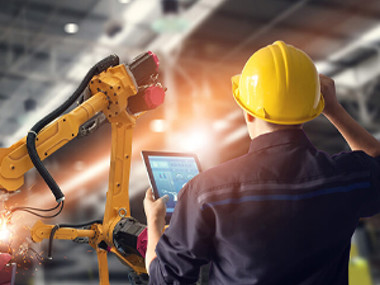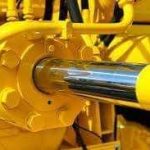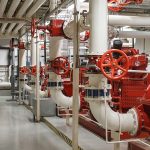Program Overview:
The existence of high-efficiency equipment with minimal problems and downtimes is what organizations need. Additionally, optimal use of available assets while reducing repair and maintenance costs is crucial. Repair costs can equal three to four times the usual cost if equipment is not maintained regularly. Moreover, repairs do not accurately pinpoint the root causes of problems.
Training Content:
- Definition of Maintenance and Repair:
- Define repair and maintenance and the causes of equipment failure.
- Repair methods.
- Temporary repairs, their rules, and alternatives.
- Types of maintenance and their responsibilities.
- Centralized vs. decentralized maintenance.
- Organized maintenance programs.
- Risks of poor maintenance.
- Advantages and disadvantages of outsourcing maintenance.
- Reasons to avoid outsourcing maintenance.
- Introduction to Designing and Implementing a Preventive Maintenance Plan for All Mechanical Equipment:
- Inventory and description of all mechanical equipment.
- Description of maintenance instructions for all mechanical equipment.
- Design annual and monthly plan templates.
- Implementation, monitoring, templates, and records.
- Preventive Maintenance:
- Purpose of preventive maintenance.
- Fundamentals of preventive maintenance cycles.
- Objectives of preventive maintenance.
- Steps in preventive maintenance.
- Checklists.
- Key considerations after completing preventive maintenance.
- Risks of preventive maintenance.
- Motivating employees in the preventive maintenance program.
- Preventive maintenance models.
- Advantages and disadvantages of preventive maintenance.
- Fundamentals of Inspecting and Operating Mechanical Equipment:
- Modern systems for equipment inspection.
- Various inspection systems for mechanical equipment.
- Importance of inspection and operation processes for equipment.
- Standard inspection and operation procedures.
- Practical cases.
- Planning Operations and Operating Mechanical Equipment:
- Scientific methods for planning inspection and operation processes.
- Importance of inspection for determining maintenance needs.
- Labor requirements and preparing inspection and operation schedules.
- Providing necessary tools and equipment for proper inspection.
- Practical cases.
- Inventory and Identification of Rotating and Non-Rotating Equipment:
- Methods for inventorying equipment of all types.
- How to code different equipment.
- Recording and classifying equipment based on usage.
- Differences in handling rotating vs. non-rotating equipment.
- Methods for testing equipment and machines and early defect detection.
- Practical cases.
- Programming Maintenance Tasks for Mechanical Equipment:
- Practical computer training on maintenance programming.
- Planning and managing spare parts for mechanical equipment.
- Training on various ready-made maintenance programs.
- Contributing to the preparation of a comprehensive maintenance program for mechanical equipment.
- Practical cases.
- Modern Standards in Operating and Maintaining Mechanical Equipment:
- Identifying standards used in operation and maintenance processes.
- Listing start-up and operation issues and how to resolve them.
- Routine inspection and preventive maintenance methods for mechanical equipment.
- Fundamentals of equipment reliability and availability.
- Making improvements to mechanical machines and equipment.
- Applying risk concepts to the operation and maintenance of equipment.
- Practical cases.
Upon completing this course, participants will be able to:
- Understand mechanical preventive maintenance.
- Identify tasks related to mechanical preventive maintenance.
- Recognize programs related to mechanical preventive maintenance.
- Monitor and control variables in mechanical preventive maintenance programs.
- Develop mechanical preventive maintenance plans using schematics, technical specifications, and maintenance catalogs for mechanical devices.
Main Topics:
- General introduction to maintenance and repair.
- Understanding methods for designing and implementing preventive maintenance plans for all production and auxiliary equipment.
- Preventive maintenance.
- Fundamentals of inspecting and operating mechanical equipment.
- Planning operations and operating mechanical equipment.
- Inventory and identification of rotating and non-rotating equipment.
- Programming maintenance tasks for mechanical equipment.
- Modern standards in operating and maintaining mechanical equipment.
Program Advantages:
- Accredited certificate from the Technical and Vocational Training Corporation.
- Trainers are professional engineers and experts in the field of preventive mechanical maintenance.
- Intensive training on mechanical preventive maintenance.
- Hotel-like training environment in well-equipped training halls.
Target Audience:
- Students in mechanical engineering and mechatronics departments.
- Mechanical maintenance engineers in industrial or service companies.
- Operations, maintenance, and planning managers.
- Operations and maintenance engineers.
- Electrical engineers.
- Maintenance supervisors.
- Technicians in all areas of mechanical maintenance.






